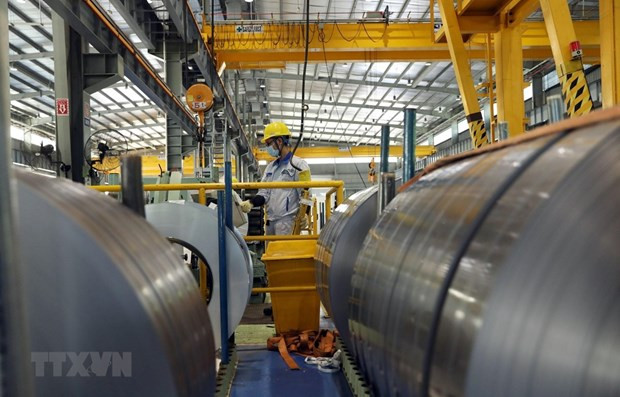Because the rise in steel prices has harmed numerous public-sector projects, the Ministry of Finance has proposed increasing tariffs on steel exports while lowering tariffs on steel imports.

The Ministry of Finance said in a draft decree amending Decree 57 on preferential import-export tariffs that the significant rise in local steel prices was primarily attributable to high costs of inputs for steel manufacturing, which were mostly imported.
To assist stabilise the supply of steel billets for the domestic market and steel prices, the Ministry of Finance has recommended that the Government raise tariffs on steel billet exports from 0% to 5% to help restrict steel exports and guarantee the steel sector’s long-term growth.
Meanwhile, certain steel goods have long been subject to hefty import tariffs, ranging from 15% to 25%. As a result, taxes on steel imports that are now subject to a 15% tax rate should be reduced to 10%, and those subject to 20% or 25% tax rates should be reduced to 15%, in order to lower the costs of steel-making inputs.
The lowering of these import taxes would result in a decrease in income for the state budget, but it is essential. Due to the limited demand for steel imports, the lowered number will not be very large.
The tariff decrease will encourage domestic businesses to invest in technology that will lower their product costs and make them more competitive against imported steel.
ASL LAW is the top-tier Vietnam law firm for tax law consulting service. If you need any advice, please contact us for further information or collaboration.

 Tiếng Việt
Tiếng Việt 中文 (中国)
中文 (中国) 日本語
日本語
